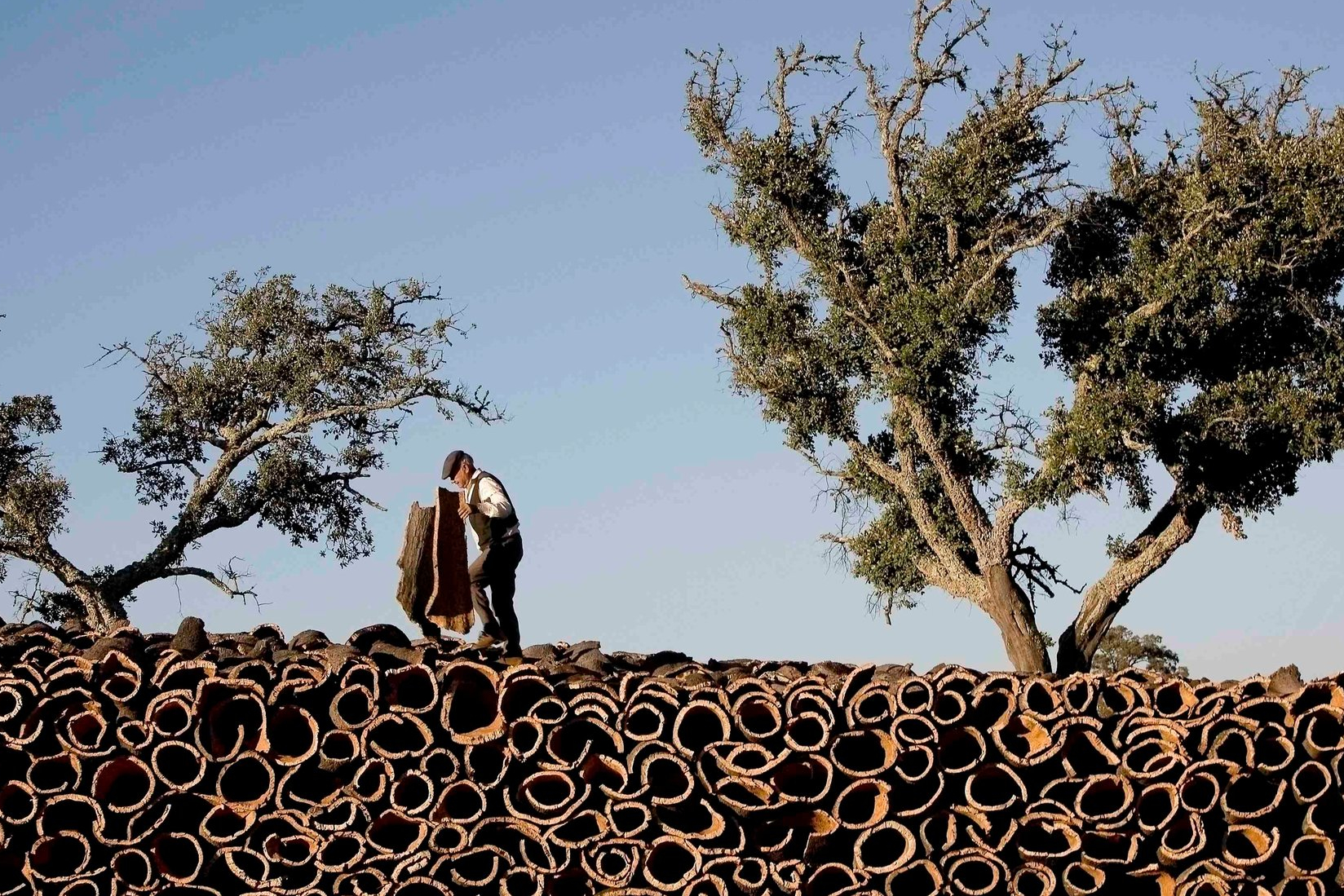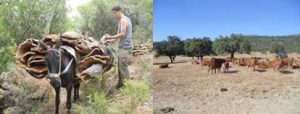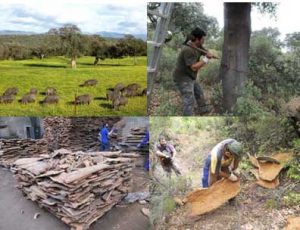
Responses to complex change in a high biocultural diversity landscape: the cork oak (Quercus suber) forest landscapes of Spain, Portugal and other areas of the Western Mediterranean.
Principal Investigator: Rajindra Puri CBCD
Co-investigator: Prof. Rufino Acosta (Anthropology, U. Seville, CBCD Visiting Professor 2013)

Our aims in this ongoing project, since 2013, are to pursue multidisciplinary research on the causes and consequences of changing human-environment relations in the cork oak (Quercus suber) forest landscapes of Spain, Portugal and other areas of the Western Mediterranean.
The cork oak woodlands of Iberia, known as the dehesa (Spain) and montado (Portugal), are multipurpose agri-sylvi-pastoral landscapes, that have been managed for centuries (for cork, acorns, wood, crops, fodder, commodities, wild plants, and recently for tourism, and against fire and scrub), and hold a huge amount of biodiversity, including many endemic species (e.g. Iberian lynx), precisely because they are human managed landscapes. Thus, the cork woodlands are an excellent example of biocultural diversity at the landscape level, being formed and evolving because of the close co-evolution of biological and cultural processes, while also producing local varieties of crops and a corpus of knowledge, skills and technologies to manage this landscape. But no complex adaptive system is static and changes are affecting these areas, as they are across all of Europe.
The climate is getting dryer and hotter, fires are more prevalent, and water scarcity common. According to many of Spain’s experts in the area, Andalusia’s climate and environment are becoming more and more like Morocco’s. There have been concomitant changes ecologically, invasive species, pest and diseases, all threaten cork oak trees and cork production. Economically, the 2008 financial crisis devastated Spain and Portugal; urbanization, rural flight and land abandonment are increasingly common, leading to a depressed local economy, a build-up of scrub and wild fires, and loss of biological and cultural diversity.
Our overall aim is to understand the extent of these changes and their impacts, and then to document and explain how people are responding to change. Building on previous research for the CBCD’s Human Adaptation to Biodiversity Change project, we expect that responses will involve a complex set of interacting aspects, including livelihoods, values and value, institutions, and knowledge. We have already begun to document some of the experiments going on in these changing landscapes, such as intensification of olive production, cattle or Iberian pig production, nature conservation, nature tourism, agritourism, trophy hunting, etc. There may be many more innovative ways farmers and others are adapting to what has been called the New Rurality, and we think these are solutions that should be documented and shared.
We have run a similar project in Kent, around Canterbury, known as 50 Farmers’ Tales, that has produced an archive of stories of how farms and farming have changed since the mid 1960s.
The dehesa of Andalusia and Extremadura has become a research site and context for masters and PhD research projects in ethnobotany, environmental anthropology and conservation. We’ve also commissioned a few small undergraduate research projects to explore the changing meanings of cork oak forests in the public discourse of environment and sustainability in Spain and Portugal.
Publications and Presentations
Acosta, Rufino and Raj Puri. 2017. La dinámica del conocimiento local sobre el alcornoque y el corcho en el suroeste español. Annual Meeting of Society of Economic Botany, Bragança, Portugal, June 5-8, 2017.
Garcia-Gomez, Enrique, Pérez-Badia, R., Pereira, J. and Raj Puri. 2017. The consumption of acorns (from Quercus spp.) in the Central West of Iberian Peninsula in the twentieth century. Economic Botany 71(3): 256-68. (Working paper).
Acha, Aran and Newing, Helen. 2015. Cork oak landscapes, promised or compromised lands? A case study of a traditional cultural landscape in Southern Spain. Human Ecology, 43(4), pp.601-611.
Maddox, Nathaniel. 2015. Food Plants of the Pasturelands: Exploring the Biocultural Dynamics of Wild Plant Foods in Valverde de Burguillos, Extremadura, Spain. MSc Dissertation in Ethnobotany. School of Anthropology and Conservation, Univ. of Kent, UK.
Giniaux, Juliette. 2014. Change in the management practices of cork oak trees in the Pyrénées-Orientales, France. MSc Dissertation in Ethnobotany. School of Anthropology and Conservation, Univ. of Kent, UK.
Carvalho, Gabriela. 2014. Online media perceptions regarding cork oak in Portugal. Final report for UG Exchange Programme. School of Anthropology and Conservation, Univ. of Kent, UK.
